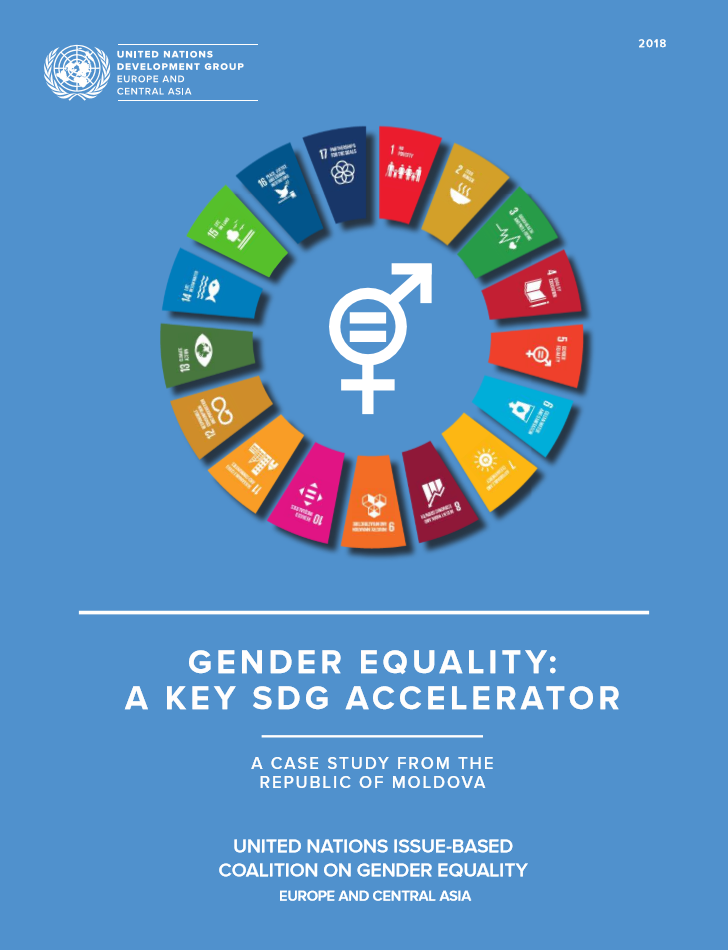
Gender Equality: A Key SDG Accelerator, a case study from the Republic of Moldova

An analysis of the data from the 2017 UN Mainstreaming, Acceleration, and Policy Support (MAPS) mission in the Republic of Moldova demonstrates the influence gender equality and women’s empowerment (GEWE) has to accelerate development progress towards not only gender-specific targets and goals, but towards targets and goals beyond Sustainable Development Goal (SDG) 5, Gender Equality and Empowerment of All Women and Girls. Though evidence for GEWE as an accelerator of development abounds, this document provides a country case study for Gender Theme Groups (GTGs) and UN Country Teams (UNCTs) as they craft strategies in collaboration with national and local partners working towards the 2030 agenda. While some of the connections in this report are specific to the Moldovan context, a majority of the influence of GEWE advancement on other SDGs and on development generally is observable in any context. Data from the Moldova MAPS mission suggests that GEWE concerns should be fully recognized in future MAPS missions in order to effectively identify national SDG accelerators. Additionally, development actors seeking to maximize efficiency and effectiveness in their approach to the achievement of the 2030 agenda should consider the multiplier effect of GEWE initiatives.
This document was developed by the United Nations Europe and Central Asia Issue-Based Coalition on Gender Equality (IBC-Gender), consisting of 13 UN agencies and entities at the regional level (FAO, ILO, OHCHR, UNDP, UNECE, UN Environment, UNESCO, UNFPA, UNICEF, UNISDR, UN Women, WFP, WHO), under the overall framework of ECA Regional UN System with Regional UNDG and RCM. The document is also available at https://undg.org/document/gender-equality-a-key-sdg-accelerator.